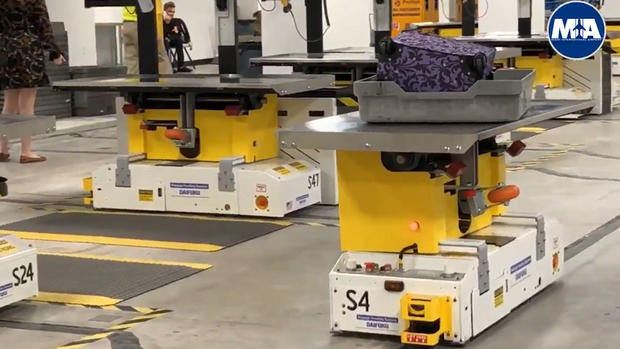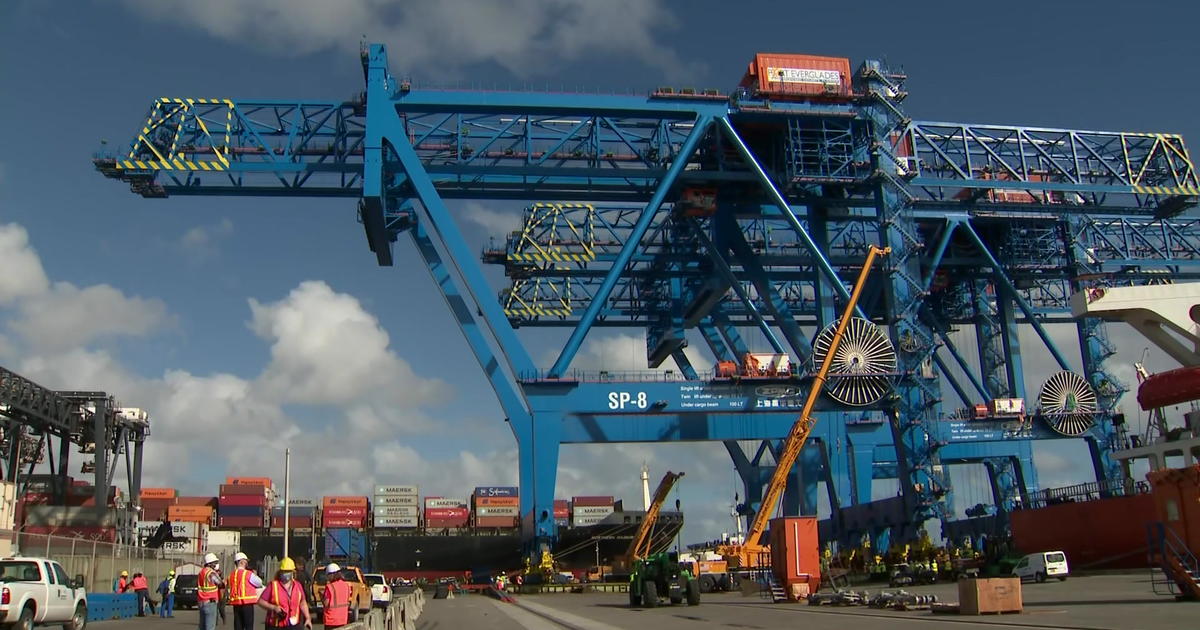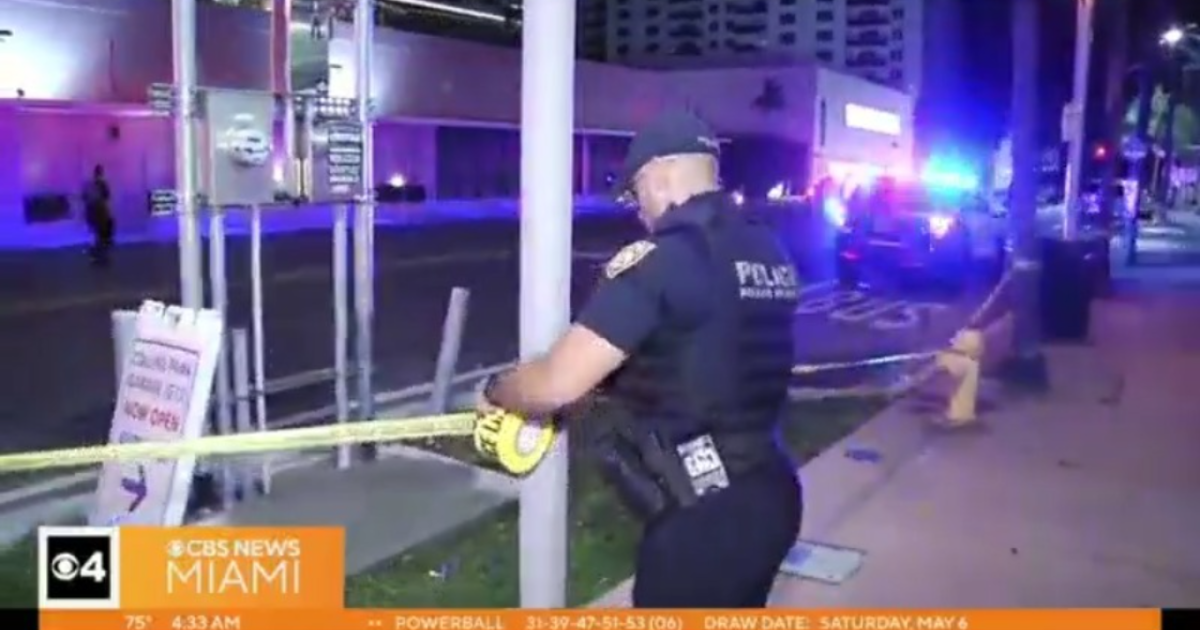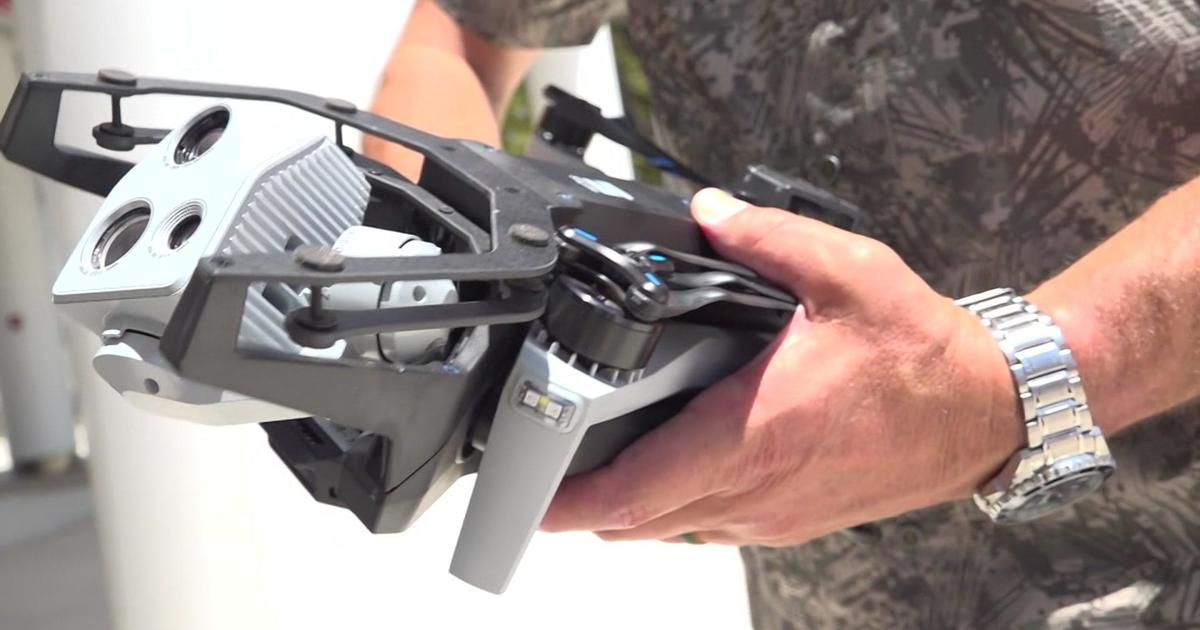Miami International Airport Speeds Up Screening With $324M Baggage Handling System
MIAMI (CBSMiami) – Miami International Airport is showing off its new high-tech automated baggage screening system, which features one of the world's largest installations of automated guided vehicles.
The new $324-million state-of-the-art baggage handling system is located in the Central and South Terminal facilities.
It was partially funded by a $101.2-million grant from the TSA. The system doubles the speed and efficiency of baggage screening and delivery for flights in concourses E, F, G, H and J, while also reducing the risk of injury for TSA officers.
"It gets put on the belt behind the ticket counter and then it goes through a belt system which includes 9 miles of belts," explains Daniel Ronan, Federal Security Director with the Transportation Security Administration. "And it will go through one of new explosive detection system machines."
There are actually 12 new explosive detection machines.
If a bag needs a second look and a hand check, it makes it to another room filled with moving tables, 102 of them, and agents wait for the bags to make it to their station. They are called mobile inspection tables (MIT) – one of the largest installations of automated guided vehicle (AGV) technology in the world.
"He looks for the item that needs to be checked, opens the bag, checks the bag, once he clears the bag he pushes a button and the table takes the bag to the clear belt," explains TSA officer Ricardo Piedra.
This is the first major airport in the country to use the system on such a large scale.
"We inspect 100% of all the bags that are checked," says Miami International Airport Director Lester Sola. "What this technology allows us to do is do it quicker at a higher rate of accuracy."
WATCH THE SYSTEM IN ACTION
The new facility, which began its first phase of operations in July, can screen and transport more than 7,000 bags per hour - double the capacity of the previous two separate and outdated systems for concourses F, G, H and J.
Eighteen airlines are already using the new system, with 30 more airlines scheduled to make the transition between now and mid-2020.
It is also expected to cut back on work place injuries since much of the system is automated.
"This new system improves the efficiency of the checked bag system and reduces the risk of injury to TSA officers who no longer have to lift, push, pull or carry bags while doing those checks," explains Ronan.




